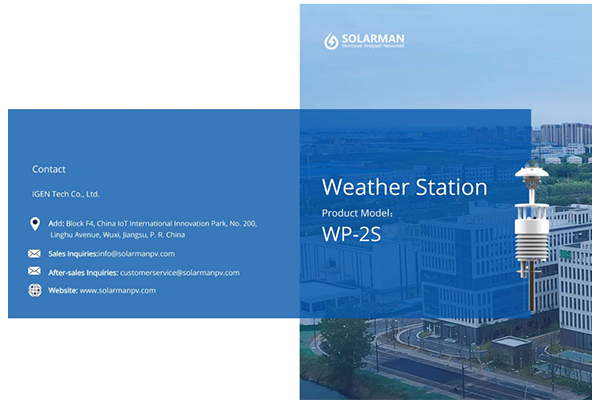A meteorological sensor is a device used to monitor and measure atmospheric environmental parameters. It plays an important role in modern meteorological observation and prediction. With the continuous development of science and technology, the application scope and accuracy of weather sensors are also constantly improving, becoming an intelligent technology tool in the field of weather monitoring.
The main function of weather sensors is to sense parameters such as temperature, humidity, air pressure, wind speed, and precipitation in the atmosphere, and convert these data into digital signals for use by meteorologists, weather forecasters, or automatic weather stations. Modern meteorological sensors have the characteristics of high sensitivity, high precision, and real-time monitoring. They can quickly and accurately obtain weather information and provide reliable data support for weather prediction.
Meteorological sensors play an indispensable role in weather monitoring and prediction. They can help meteorological departments understand changes in the atmospheric environment in a timely manner, provide early warning of natural disaster risks, and protect the safety of public life and property. At the same time, meteorological sensors are also widely used in agriculture, aviation, energy and other fields, providing important meteorological information support for all walks of life.
When selecting meteorological sensors, factors such as monitoring parameters, accuracy requirements, and installation environment need to be considered to ensure that equipment suitable for actual application scenarios is selected. Common meteorological sensors include temperature sensors, humidity sensors, wind speed sensors, rainfall sensors, etc. Different types of sensors can be used in combination according to needs to provide more comprehensive meteorological monitoring information.
SOLARMAN’s Weather Sensors are sophisticated devices meticulously designed to monitor and collect real-time meteorological data crucial for optimizing solar energy production. These sensors, embedded with advanced technology, track key weather parameters including solar radiation, temperature, humidity, wind speed and direction, and precipitation. The precise measurements facilitate dynamic adjustments to solar PV systems, enhancing overall efficiency and maximizing energy yield. Integrated seamlessly with SOLARMAN’s smart energy management platform, the data gathered contributes to informed decision-making, predictive maintenance, and improved grid interaction, ensuring that renewable energy systems perform at their peak even amidst fluctuating weather conditions.

